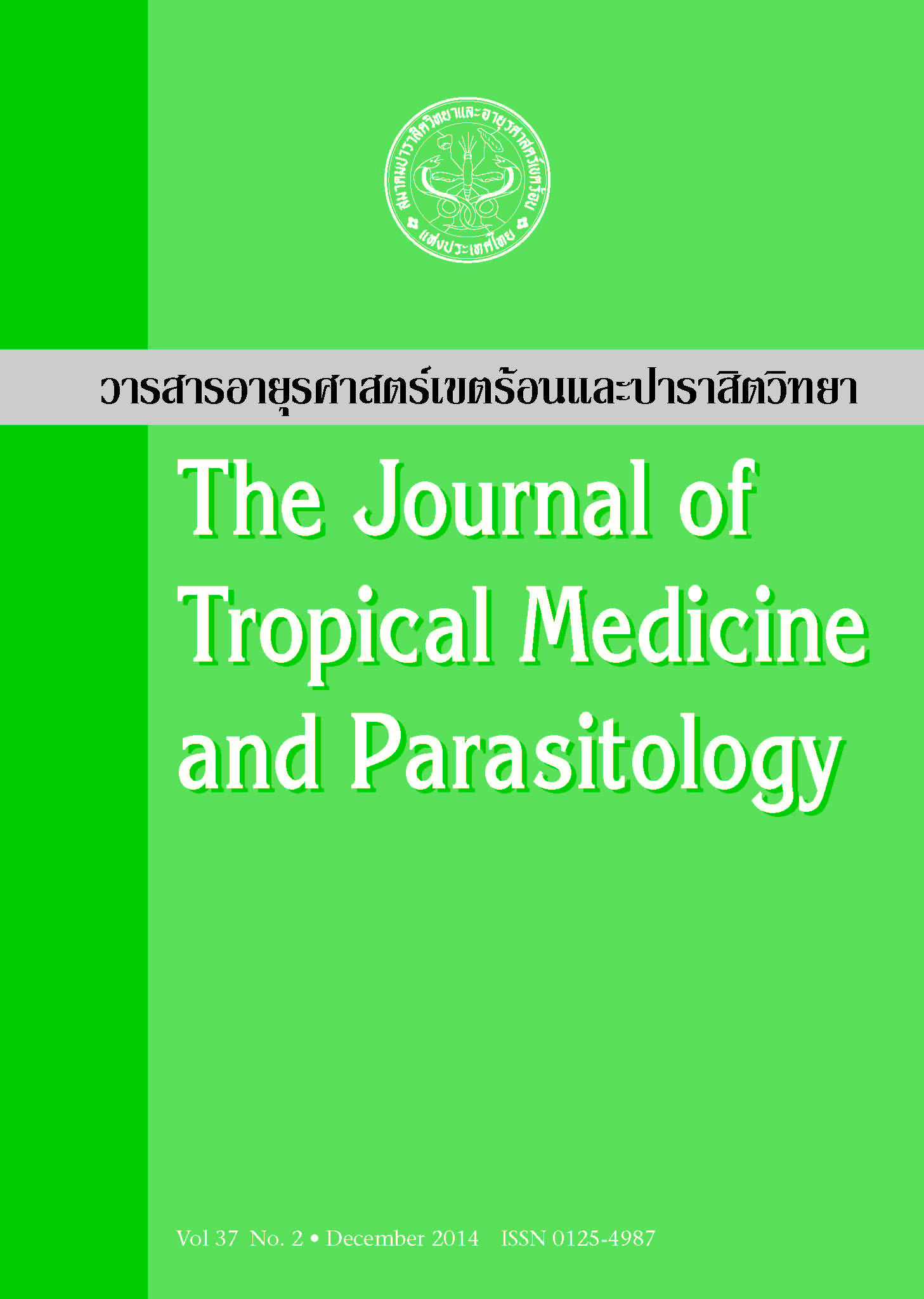Role of Cathepsin B in Schistosoma japonicum Infection
Main Article Content
Abstract
Proteases, including cysteine-, serine-, threonine-, aspartate-, and metallo-proteases, are a group of enzymes that have the catalytic ability to hydrolyze or digest peptide bonds of proteins. Proteases play important roles in host invasion, hemoglobin degradation, transformation and immune invasion of schistosomes. The gut cathepsin B of all schistosomes including S. japonicum, S. mansoni and S. haematobuim is involved in hemoglobinolysis. Since Schistosoma japonicum cercariae show quicker migration through host skin as compared to S. mansoni and S. haematobium, it has been proposed that cathepsin B residing in the acetabular gland of S. japonicum might be one of the factors that facilitates its rapid skin penetration. This review focuses on the potential roles of cathepsin B for hemoglobin degradation and skin penetration of schistosomes. Defining the role of cathepsin B might be useful in identifying the drug target for schistosomiasis.

